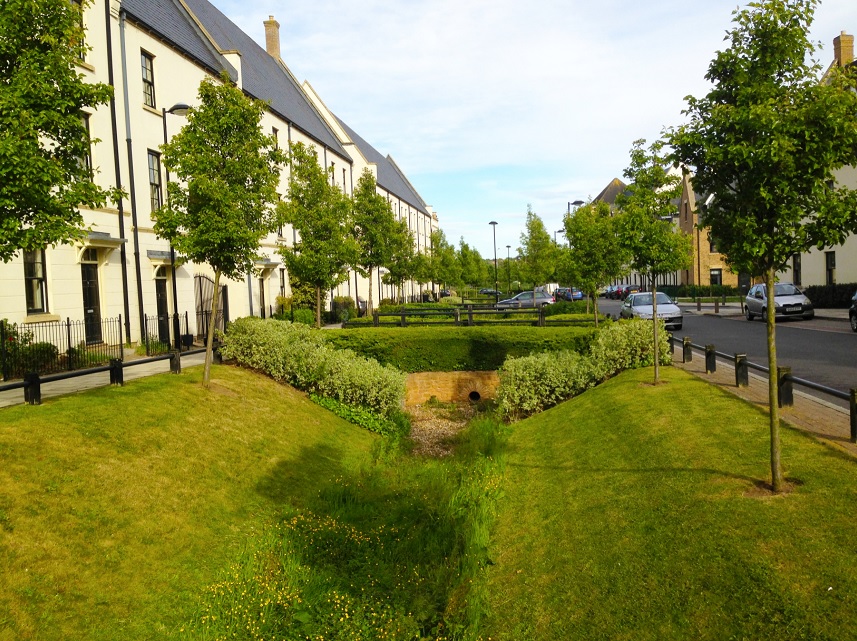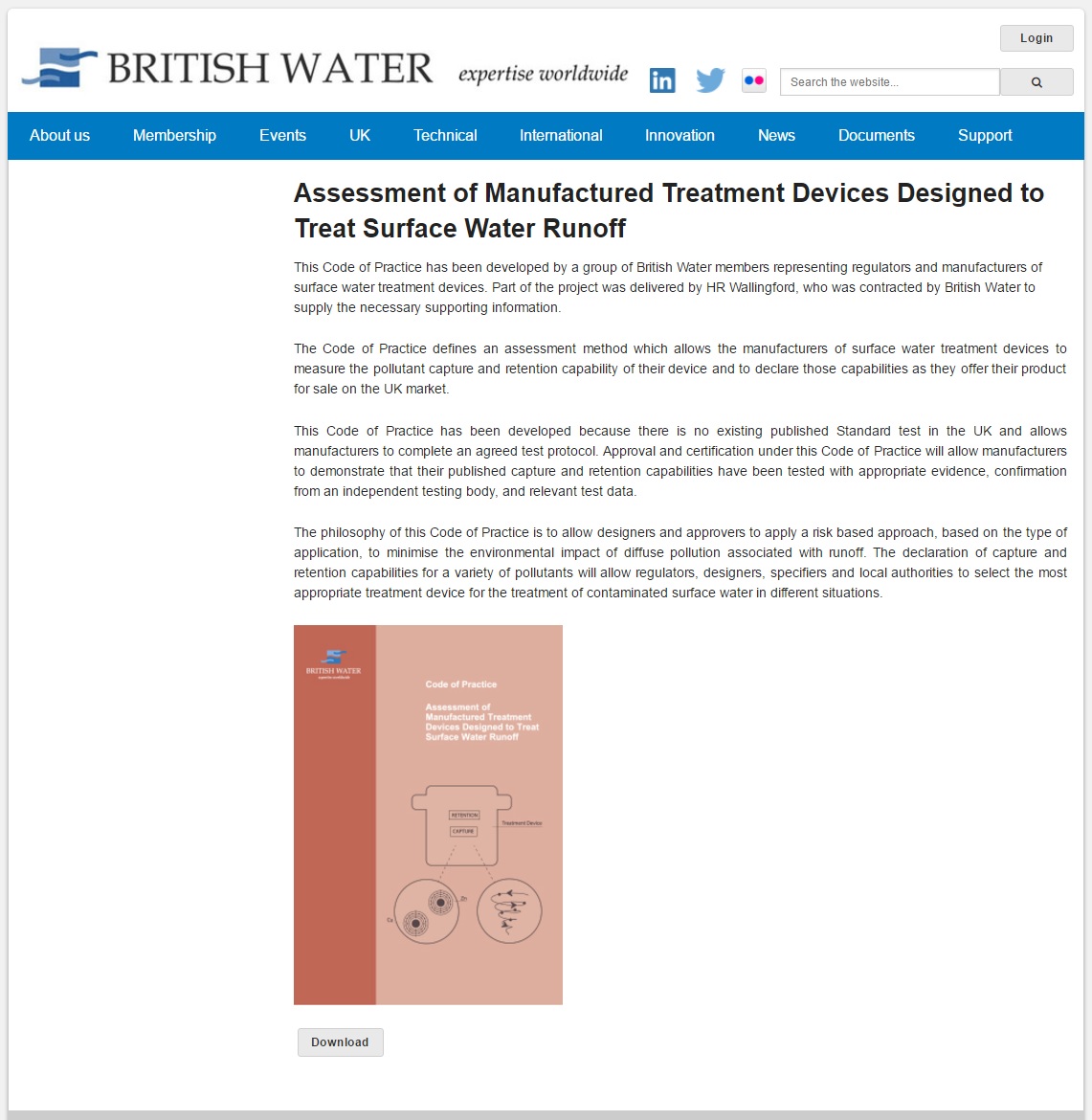British Water publishes SuDS Code of Practice
Seen as a significant industry development and two years in the making, British Water has published a voluntary code of practice to support SuDS (Sustainable Drainage Systems) Technologies. A key feature of the code of practice is that it allows manufacturers of surface water treatment products to measure pollutant, contaminant and sediment levels. This will enable producers to accurately describe the merits of their water treatment devices. The code was developed with supporting consultancy research provided by HR Wallingford, commissioned by British Water members and supported by the Environment Agency.
The code is designed to remove environmental pollutants from surface water runoff. It is envisaged that tested devices will be primarily deployed to treat urban and residential areas such as road surfaces, car parks, manufacturing and business sites.
Key details the code of Practice testing, as referred to by British Water:
- Typical pollutant capture efficiency for frequent sub-annual rainfall events.
- Sediment retention capability for up to 1.2 year rainfall events likely to cause washout.
- Capability of the filter media to retain dissolved pollutants under the influence of de-icing salt.
Marta Perez (British Water Technical Director) stated “standards are necessary to demonstrate how well proprietary devices used in sustainable drainage systems (SuDS) treat runoff and remove heavy metals from the water cycle. Until now there has not been a standard for testing in the UK”.
What is not covered by the Code?
British Water’s code cannot be enforced as it is a voluntary guide designed to promote improved industry standards. Furthermore it does not cover important areas such as installation requirements and quality assurance of manufacturing production. However businesses that opt to apply the code will be able to calculate and declare a pollution migration index, confirmed by an independent testing body. This key benefit will allow those manufacturers delivering SuDS to minimise the environmental effects of the pollution derived from run off, using a risk based approach.
The Environment Agency Deputy Director, Helen Wakeham, explained “I am delighted to see the results, which will further support the implementation of SuDS in England”.
Unda can a prepare Surface Water Drainage Strategy (or Sustainable Drainage System report) in support of a planning application or to discharge a planning condition imposed by the regulator. Unda’s reports provide initial strategy options and an outline strategy that will offset the increase in surface water run-off from a new development using best practice and using a methodology approved by the regulators.
Contact us to find out more about how Unda can provide you with a Surface Water Drainage Strategy (SuDS) For Planning.

